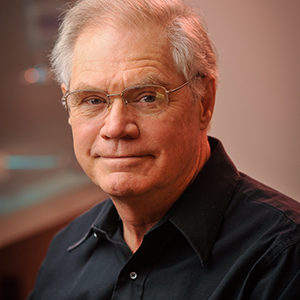 A member of the University of Alabama at Birmingham’s School of Medicine Faculty since 1978, David Briles, Ph.D., has been a trailblazer in the field of Streptococcus pneumoniae vaccine development and pathogenesis.
A member of the University of Alabama at Birmingham’s School of Medicine Faculty since 1978, David Briles, Ph.D., has been a trailblazer in the field of Streptococcus pneumoniae vaccine development and pathogenesis.
Dr. Briles’ early work fundamentally altered our understanding of protective immunity against S. pneumoniae, the leading cause of community-acquired pneumonia and invasive bacterial disease. Dr. Briles has made major contributions to our understanding of pneumococcal biology, elucidating at the molecular level how this gram-positive bacterium transmits between individuals and survives in the host. Along the way, Dr. Briles has been an outstanding educator and mentor to hundreds of students, postdoctoral fellows, and junior faculty. In particular, he has been a very strong advocate for underrepresented minorities. As evident by his service, scientific discoveries, honors, patents, publications, grants, and successful mentees, Dr. Briles has accomplished a rare and distinguished level of achievement that will continue to impact the success of UAB research as he ventures into retirement.
According to, Dr. Frances Lund, Professor and Chair of Microbiology, “Dr. Briles has made significant contributions to global medicine and has revolutionized the disciplines of infectious disease and vaccine development. Dr. Briles is highly respected and valued by his peers, the international scientific community, and the hundreds of scientists that he has trained and mentored; not only for his scientific ingenuity, but his strength of character and eagerness to train and educate the next generation of scientists. Overall, Dr. Briles’ career and broad impact on human health can be described as nothing less than stellar and remarkable.”
Close collaborator, Dr. Carlos Orihuela says, "Dr. Briles is highly respected and valued by his peers, the international scientific community, and the hundreds of scientists that he has trained and mentored; not only for his scientific ingenuity, but his strength of character and eagerness to train and educate the next generation of scientists."
We had the opportunity to speak with Dr. Briles on his dedicated efforts throughout his career and what is next for him as he settles down in Austin, Texas.
Q: How did you end up at UAB?
“I interviewed many places,” Briles said, but none could compare to what UAB had to offer.
Mt Sinai medical school figured out that I had already been in New York City for too many years and would never come back. Northwestern University Medical School made a very good offer, but they could not offer the level of colleagues, interactions, and potential collaborations that UAB could offer. The University was much smaller then, but it fit me like a glove. I am delighted to see that our Department and the UAB School of Medicine as a whole have prospered so well in the intervening 43 years. UAB is a place I am really proud to say I worked there, where my career turned out extremely well, and where I had such wonderful colleagues.
Q: What was a defining moment for you while at UAB?
When our Pneumococcal protein vaccine went into human trials for the first time.
Q: What has been your favorite project, and why?
Our lab’s favorite project was attempting to improve the lives of children by reducing their morbidity and mortality to pneumococcal infection by developing a vaccine inexpensive enough that it could be used widely in the developing world where most of the suffering and deaths occur. The vaccine hit some corporate road blocks in the US but is still being developed in a couple of parts of the world, and I am still involved.
Q: What would you say is your passion in life?
Dr. Briles says he has four passions in life.
First, his work. Specifically, the project above that is working to improve the lives of children through affordable pneumoniae vaccines.
Second, being a mentor. “The ability to train, guide, and support my trainees as they developed. Seeing them come in to the lab with wide eyes, but not aware of how hard research is, and then develop to the limits of their capabilities, and go on to create their own careers and lives of their own making.”
Third, family. “Interacting and playing with my children and grand-children and helping them think about apparent road blocks and opportunities.”
Lastly, the family farm. “Purchased by my parents in 1970 and now developed with trees, crops, and very recently approval to put 29 acres into a federal program protect against erosion and at the same time provide a habitat for pollinator species from bees to birds. Everyone is invited to rural Illinois to help us burn the new prairie every few years.”
Q: What is next for you?
For Briles getting old isn't for the faint of heart. His goal is to, “continue to do as much as I can as long as I can."
Q: Do you have any words of wisdom that you’d like to share?
Always follow your passion, work hard, and with every fall get up and do things a little smarter.